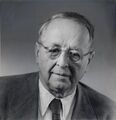Template:Selected anniversaries/November 9: Difference between revisions
No edit summary |
No edit summary |
||
| (3 intermediate revisions by the same user not shown) | |||
| Line 1: | Line 1: | ||
<gallery> | <gallery> | ||
|| *** DONE: Pics ** | |||
||1520: More than 50 people are sentenced and executed in the Stockholm Bloodbath | ||1520: More than 50 people are sentenced and executed in the Stockholm Bloodbath | ||
| Line 48: | Line 49: | ||
||1979: Nuclear false alarm: The NORAD computers and the Alternate National Military Command Center in Fort Ritchie, Maryland detected purported massive Soviet nuclear strike. After reviewing the raw data from satellites and checking the early-warning radars, the alert is cancelled. | ||1979: Nuclear false alarm: The NORAD computers and the Alternate National Military Command Center in Fort Ritchie, Maryland detected purported massive Soviet nuclear strike. After reviewing the raw data from satellites and checking the early-warning radars, the alert is cancelled. | ||
||1984: Hans Petersson dies ... mathematician. He introduced the Petersson inner product and is also known for the Ramanujan–Petersson conjecture. Petersson was a member of the NSDAP. Pic search: https://www.google.com/search?q=Hans+Petersson+mathematician | |||
||1993: Ross Andru dies ... American illustrator ... known for his work on The Amazing Spider-Man, Wonder Woman, The Flash, and The Metal Men, and for having co-created the Punisher. His most frequent collaborator was inker Mike Esposito, with whom he worked on projects over a span of four decades. Pic. | |||
||1994: The chemical element darmstadtium is discovered. | ||1994: The chemical element darmstadtium is discovered. | ||
||1997: Carl Gustav | ||1997: Carl Gustav Hempel dies ... writer and philosopher. He was a major figure in logical empiricism, a 20th-century movement in the philosophy of science. He is especially well known for his articulation of the deductive-nomological model of scientific explanation, which was considered the "standard model" of scientific explanation during the 1950s and 1960s. He is also known for the raven paradox (also known as "Hempel's paradox"). Pic. | ||
File:Venus Express in orbit.jpg|link=Venus Express (nonfiction)|2005: The [[Venus Express (nonfiction)|Venus Express]] mission of the European Space Agency is launched from the Baikonur Cosmodrome in Kazakhstan. | File:Venus Express in orbit.jpg|link=Venus Express (nonfiction)|2005: The [[Venus Express (nonfiction)|Venus Express]] mission of the European Space Agency is launched from the Baikonur Cosmodrome in Kazakhstan. | ||
||2006: Markus Wolf dies ... German intelligence officer ... head of the Main Directorate for Reconnaissance (Hauptverwaltung Aufklärung), the foreign intelligence division of East Germany's Ministry for State Security (Ministerium für Staatssicherheit, abbreviated MfS, commonly known as the Stasi). He was the Stasi's number two for 34 years, which spanned most of the Cold War. He is often regarded as one of the most well known spymasters during the Cold War. In the west he was known as "the man without a face" due to his elusiveness. Pic. | ||2006: Markus Wolf dies ... German intelligence officer ... head of the Main Directorate for Reconnaissance (Hauptverwaltung Aufklärung), the foreign intelligence division of East Germany's Ministry for State Security (Ministerium für Staatssicherheit, abbreviated MfS, commonly known as the Stasi). He was the Stasi's number two for 34 years, which spanned most of the Cold War. He is often regarded as one of the most well known spymasters during the Cold War. In the west he was known as "the man without a face" due to his elusiveness. Pic. | ||
||2007: The German Bundestag passes the controversial data retention bill mandating storage of citizens' telecommunications traffic data for six months without probable cause. | ||2007: The German Bundestag passes the controversial data retention bill mandating storage of citizens' telecommunications traffic data for six months without probable cause. | ||
| Line 69: | Line 72: | ||
||2013: Émile Zuckerkandl dies ... biologist considered one of the founders of the field of molecular evolution. He is best known for introducing, with Linus Pauling, the concept of the "molecular clock", which enabled the neutral theory of molecular evolution. Pic. | ||2013: Émile Zuckerkandl dies ... biologist considered one of the founders of the field of molecular evolution. He is best known for introducing, with Linus Pauling, the concept of the "molecular clock", which enabled the neutral theory of molecular evolution. Pic. | ||
</gallery> | </gallery> | ||
Latest revision as of 15:20, 7 February 2022
1885: Mathematician, physicist, and philosopher Hermann Weyl born. He will be one of the most influential mathematicians of the twentieth century: his research will have major significance for theoretical physics as well as purely mathematical disciplines including number theory.
1920: Materials engineer and academic Philip G. Hodge born. He will study the mechanics of elastic and plastic behavior of materials, contributing to plasticity theory including developments in the method of characteristics, limit-analysis, piecewise linear isotropic plasticity, and nonlinear programming applications.
1922: Mathematician, philosopher, and academic Imre Lakatos born. He will be known for his thesis of the fallibility of mathematics and its 'methodology of proofs and refutations' in its pre-axiomatic stages of development.
2005: The Venus Express mission of the European Space Agency is launched from the Baikonur Cosmodrome in Kazakhstan.



